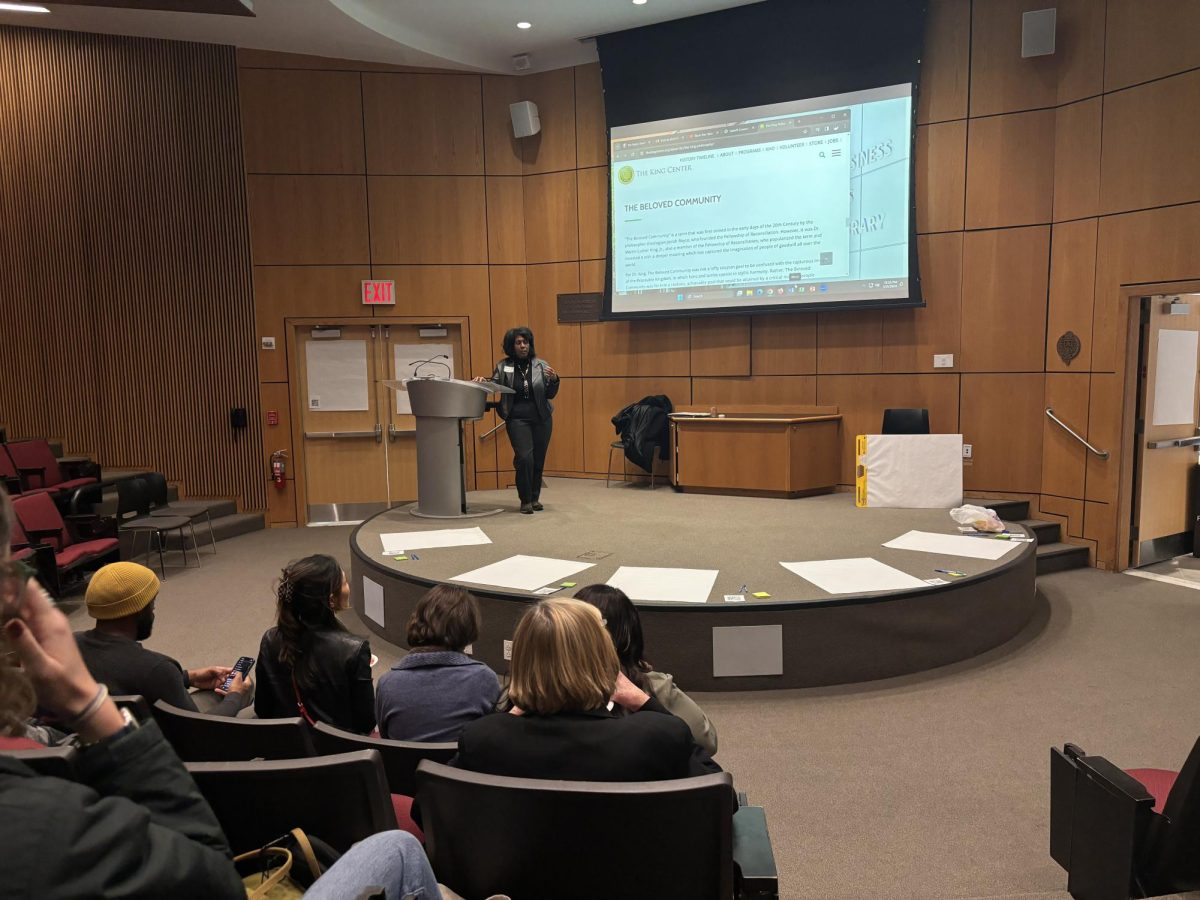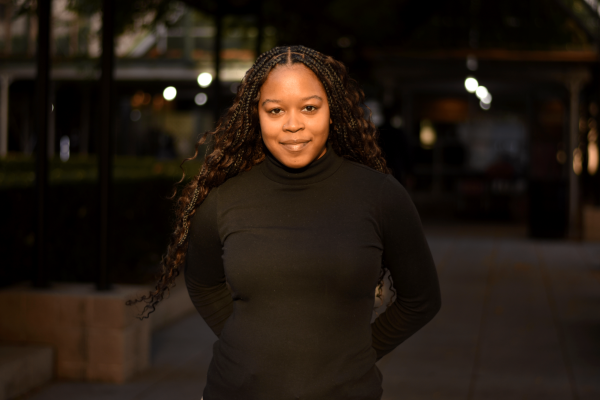The Fordham Arts and Sciences Deans’ Anti-Racism Advisory (FASARA) hosted its inaugural Beloved Community Celebration on Jan. 31 in Platt Court and McNally Amphitheater. Based on the concept of “The Beloved Community” that was popularized by Dr. Martin Luther King, Jr. the celebration aimed to foster conversations and visions of social justice on Fordham’s campuses.
Upon entering Platt Court, students and faculty were met with refreshments and encouraged to mingle and exchange introductions. Attendees were then ushered into McNally Amphitheater, where they were greeted by Michele Prettyman, faculty co-chair of the advisory group and professor of communication and media studies. The mixer commenced with a brief introduction from Prettyman who outlined anti-racist ideals at their core.
Prettyman cited The King Center website during her remarks and stated that, “Dr. King’s Beloved Community is a global vision in which all people can share in the wealth of the earth.”
The Beloved Community is a dream of an all-inclusive space rooted in the ideals of social justice and equality as a means to reconciliation, which King envisioned as a universal goal. Members of FASARA pushed Fordham students to consider what a Beloved Community would look like at Fordham’s campuses and how to bring goals of anti-racism to fruition by conversing with one another.
The program included an activity where five large notepads and writing utensils were displayed on the stage. Audience members were encouraged to share their dreams on what King’s vision can look like in the Fordham community. The activity worked to create a space that acknowledges and serves the needs of students of all communities. Attendees were provided the option to write ideas and feedback on sticky notes and display them onstage on the large notepads, or by completing an online form.
In 2020, former University President Joseph M. McShane, S.J., announced an action plan in which he pledged Fordham’s commitment to addressing racial inequality. As a member of FASARA, Prettyman said she was eager to show the community the work being done to achieve these goals.
“We meet constantly as a body, but we don’t get out into the community space at Fordham.” Prettyman said. “We wanted people to know that we exist and that there are anti-racist efforts that didn’t get lost.”
“I think there’s always going to be work. It’s like any relationship that you have in life: you’re going to need to work on it consistently, and the moment you stop, something calcifies, something goes wrong, and it gets minimal support,”
Attendees expressed excitement in seeing the work being done to create a safe space for Fordham community members of color.
Terrence Mosley, visiting artist and interim head of directing, invited students of his directing production workshop class to attend the mixer, which took place during their class time. He shared that he believes that this event is a step in the right direction for the Fordham community, as he’s seen the student body become increasingly diverse in the past few years. Mosley adds that it is crucial for the university to stay consistent in its anti-racist efforts in order to sustain momentum toward its goals.
“I think there’s always going to be work. It’s like any relationship that you have in life: you’re going to need to work on it consistently, and the moment you stop, something calcifies, something goes wrong, and it gets minimal support,” he said.
According to Fordham’s Diversity, Equity, and Inclusion office, the university’s student body has been diversifying over the years, with less than 30% of students identifying as a student of color in 2014 increasing to over 40% in 2022. Notably, Black/African-American student enrollment slightly decreased from 2021 and Hispanic/Latino student enrollment continued to increase.
Cora Therber, Fordham College at Lincoln Center ’24, and a member of Mosley’s theater class, attended the Beloved Community Celebration with their classmates and was enthusiastic about the work being done.
Therber treasured the space created for often overlooked conversations that are needed to transform the university positively. They especially appreciated the push to critically consider how to bring about change at Fordham.
“I think that it’s cool to reach out to people and to talk about things,” Therber said. “Just because an ideal seems impossible to reach, it doesn’t mean it’s not worth talking about.”
Members of FASARA intend for Beloved Community to be an annual event and to expand as more students and faculty participate. They are aiming to continue building their presence on Fordham campuses and respond to the feedback they receive, using it to continue anti-racist efforts in a way that holistically meets the needs of all students.


